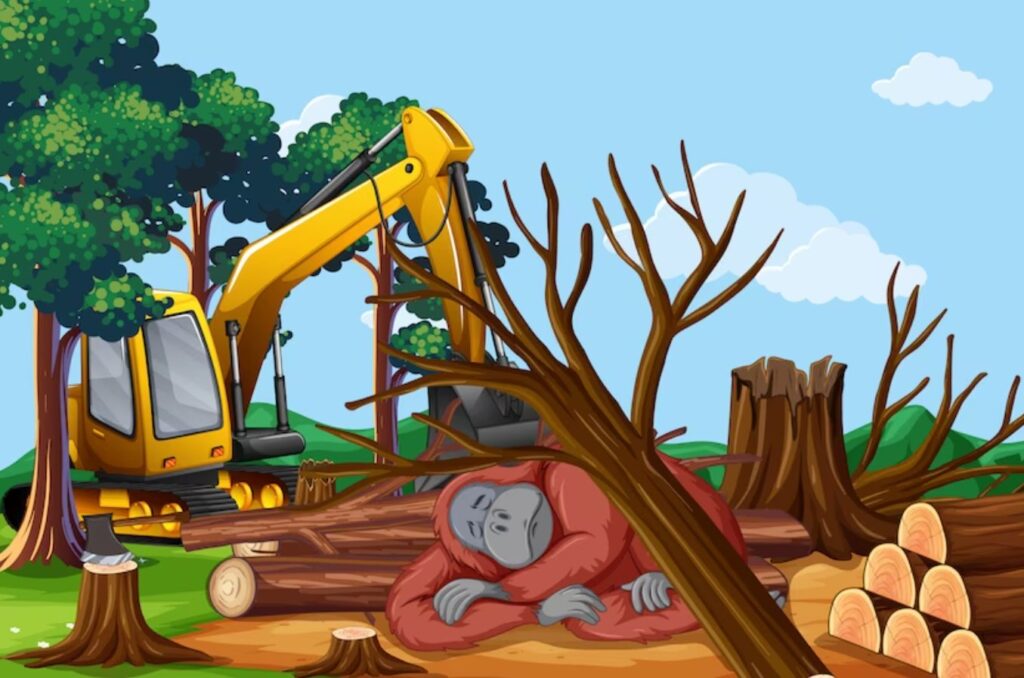
The destruction of trees and deforestation have far-reaching and devastating effects on the environment and the communities that depend on them. The consequences of this destruction are both immediate and long-term and will continue to impact the planet for many years to come.
One of the most obvious and immediate effects of deforestation is the loss of habitat for countless plant and animal species. Forests are home to an estimated 80% of the world’s terrestrial biodiversity, and the destruction of these habitats leads to declines in population numbers and increased risk of extinction for many species.
Deforestation also has a major impact on the planet’s climate. Trees absorb carbon dioxide from the atmosphere and store it in their biomass, acting as a natural carbon sink. When forests are destroyed, the carbon stored in the trees is released back into the atmosphere, contributing to global warming and climate change. According to studies, deforestation contributes to about 15% of the world’s greenhouse gas emissions, which is more than the entire global transportation sector.
In addition to its impact on the climate, deforestation also has a major impact on water cycles and can lead to soil erosion, landslides, and desertification. Forests help to regulate the amount of water in the air, and their destruction can lead to a decrease in rainfall, making it difficult for farmers and local communities to grow crops and support themselves. Furthermore, the destruction of roots systems can cause soil erosion, making it difficult for new vegetation to grow in the affected areas.
Another consequence of deforestation is the loss of important cultural and spiritual values that many indigenous communities attribute to forests. Many indigenous people depend on forests for their livelihoods, food, medicine, and cultural practices, and the destruction of these resources often destroys the way of life for these communities.
The destruction of trees and deforestation can also have economic consequences. The loss of forests can lead to decreased income from tourism, hunting, and fishing, and can also have an impact on the global economy by increasing the prices of products like paper and palm oil.
In conclusion, the destruction of trees and deforestation have far-reaching and devastating effects on the environment, communities, and the planet as a whole. The immediate effects include loss of habitat, and climate change, as well as, cultural and spiritual values and economic impacts. To address these problems, there is a need for global cooperation and efforts that include protecting remaining forests, reforestation and afforestation, and promoting sustainable land-use practices.


